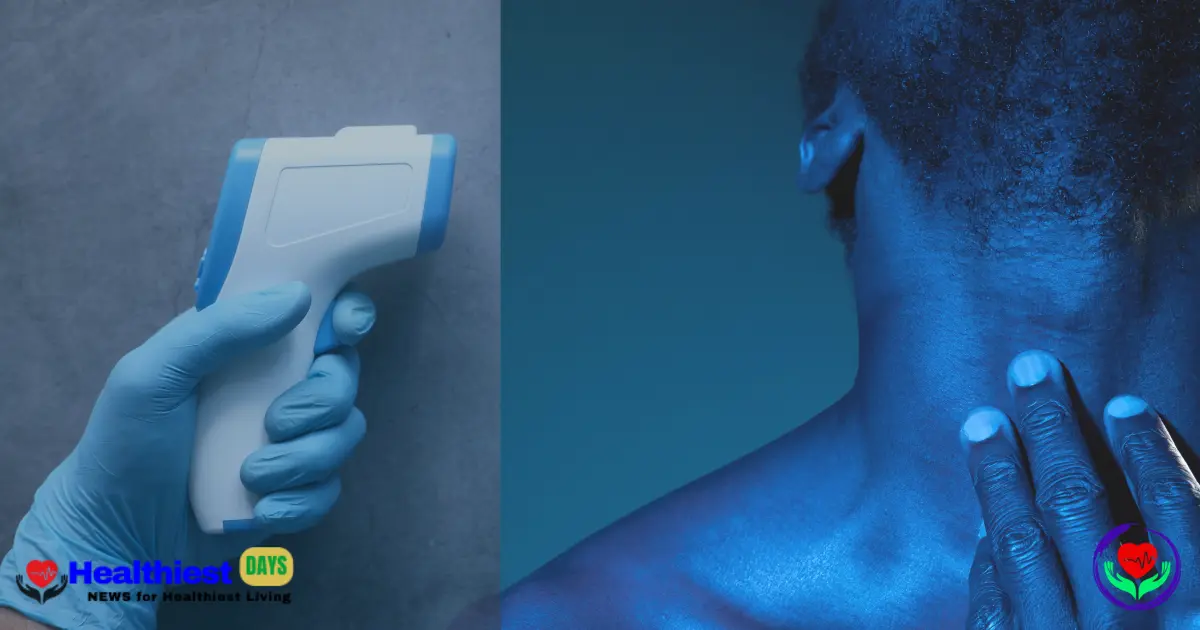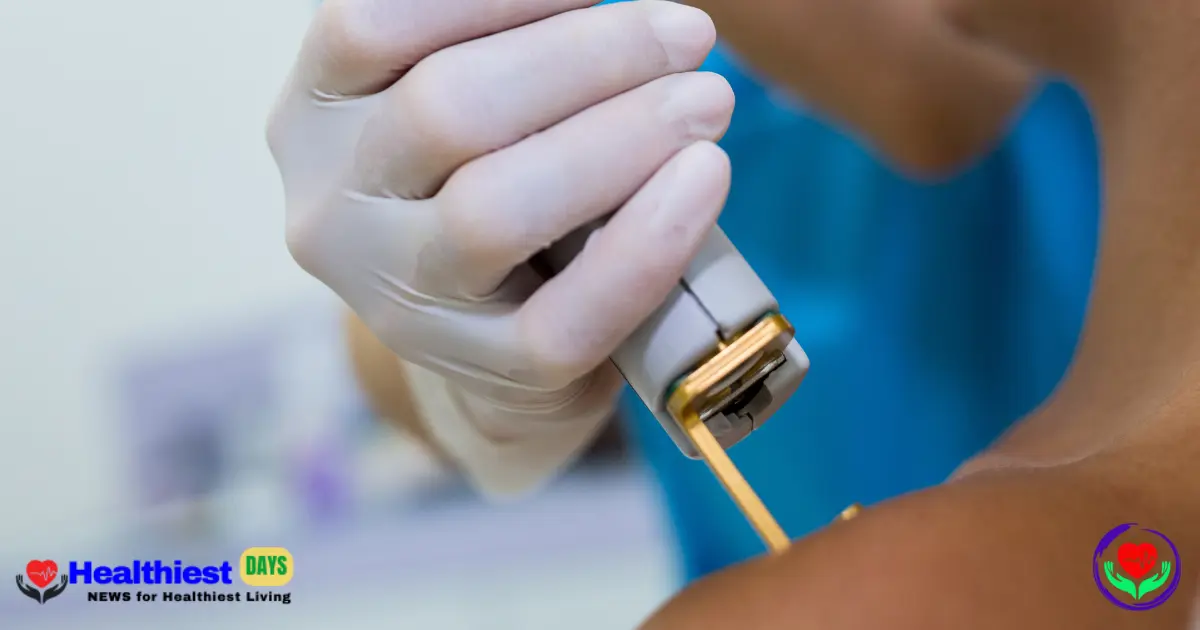Introduction: Clearing Up the Confusion About Laser and Dark Skin
Consider a situation in which you have heard that laser treatment for dark skin are not safe. Trust me, you’re not alone, as you are not wrong about their evolutionary history. Traditional lasers used for hyperpigmentation treatment were notorious for causing burns, scarring, or worsening hyperpigmentation in melanin-rich skin tones at a larger level.
With the invention of modern medical treatments in 2025, modern technology has finally caught up with the advanced needs of darker skin.
It does not matter if you are dealing with acne scars, melasma, sunspots, or post-inflammatory hyperpigmentation (PIH); the recent generation of lasers offers safety in their optimal use, is effective in bringing accurate results, and is FDA-cleared for treatments. They are designed specifically to treat deeper skin tones without collateral damage.
Why Is Dark Skin More Prone to Pigmentation and Laser Damage in the USA? Uncovering Top Concerns of 2025
Dark skin that is biologically rich in melanin offers natural protection against UV radiation. Exploring altering trends in dermatology in 2025, a growing concern in dermatology clinics across the USA is knowing the best laser treatment for dark skin.

Sufficient amounts of melanin in your skin increase the risk of hyperpigmentation and laser-related damage. It is a kind of paradox that has become a focal point for dermatologists. More specifically, as aesthetic treatments like chemical peels and lasers. Microneedling has become more popular among people with deeper skin tones.
Understanding the Root Cause of the Role of Melanin
Melanin is the major pigment that gives skin its color. Best Laser Treatment for Dark Skin, in which melanin is denser and more active. While this provides photo-protection. It also means that any inflammation or injury (like acne, bug bites, or a laser procedure) has the capability to trigger post-inflammatory hyperpigmentation.
Key reasons why dark skin is more prone to pigmentation and laser damage:
These are the following reasons that are more prone to pigmentation and laser damage:
- Increased Melanocyte Activity: Melanocytes are particular cells that are produced in darker skin and are more reactive to trauma and heat.
- Higher Risk of PIH: Even minor skin injuries, burns, or harsh treatments can surely has authority in leading to lingering dark patches
- Thermal Sensitivity: Darker skin generally retains more heat post-laser treatment, which can result in burns or prolonged inflammation.
- Improper Laser Selection: Many clinics in the U.S. still use outdated and traditional or even inappropriate laser types, such as IPL or certain fractional lasers, which are not safe for Fitzpatrick skin types IV-VI, and they are not considered Best Laser Treatment for Dark Skin.
- Lack of Provider Training: It is an approved fact that a 2025 American Academy of Dermatology (AAD) report highlights that over 40% of general dermatologists in the U.S. are not adequately trained to treat skin of color safely.
Top Pigmentation & Laser Concerns Among Dark-Skinned Patients in 2025:
- Hyperpigmentation from Acne Scars: Firstly, it is the top number one concern among Black and South Asian communities.
- Uneven Skin Tone from DIY Skincare: Secondly, it is an approved fact that the use of trending TikTok remedies and over-the-counter bleaching agents has caused an uptick in chemical burns and skin discoloration.
- Laser Hair Removal Burns: Thirdly, it is common due to the use of non-Nd:YAG lasers on dark skin.
- Microneedling Side Effects: Fourthly, improper needle depth or unskilled hands can trigger hyperpigmentation.
- Increased Sunscreen Hesitancy: Fifthly, it is experienced that aesthetic concerns around white cast still prevent consistent use of SPF, worsening pigmentation.
Key Challenges:
- Melanin reacts to heat: It is evident that lasers work using thermal energy, which is concerned with all kinds of dark skin, and they absorb more rapidly. It can also cause burns or PIH if not properly controlled.
- Inflammation triggers pigmentation: Any trauma, including laser mishandling, can worsen discoloration, and they can bring unwanted effects to your skin.
- Incorrect laser settings: Untrained and ineffective technicians using outdated devices often cause more harm than good.
That is the clear reason why selecting the right laser wavelength, device, and provider is absolutely essential.
What Makes a Laser Safe for Dark Skin?
To treat dark skin safely, the laser must:
- It is recommended to use longer wavelengths (1064 nm or more) to bypass the surface melanin.
- It is methodologically approved to deliver energy in short pulses to reduce heat damage.
- Try to be operated on by a board-certified dermatologist with experience in treating darker skin.
Top 4 Lasers Safe for Dark Skin in 2025 (with Pros & Cons)
| Laser Type | Wavelength | Best For | Pros | Precautions |
| Nd:YAG 1064 nm | 1064 nm | PIH, melasma, acne scars | Safe for deep skin, minimal PIH risk | Multiple sessions needed |
| Picosecond (PiQo4) | 532/1064 nm | Stubborn melasma, tattoos, deep pigment | Fast results, less heat damage, FDA-approved | High per-session cost |
| Fractional 1550 nm | 1550 nm | Texture + pigmentation combo | Boosts collagen, minimal downtime | Not for first-time laser users |
| Clear + Brilliant Perméa | 1440 nm | Mild pigmentation, dullness | Gentle resurfacing for glow | Less effective for deep pigment |
Best Laser for Dark Skin in 2025?
1. Nd:YAG 1064 nm—The Gold Standard Treatment
It is medically recommended by the American Academy of Dermatology that this kind of laser bypasses the top melanin layer and targets the deeper pigment clusters. It is the most reliable and widely available laser for Black and brown skin for the best laser treatment for dark skin.
2. PiQo4—The Next Generation Picosecond Laser
This picosecond laser methodology offers ultra-fast bursts of light, which shatter pigment without creating heat. It’s the best option for stubborn melasma or resistant pigmentation in skin of color.
Top benefits:
- It is more safer than nanosecond lasers
- It has Less risk of rebound pigmentation
- It suitable for all ethnicities
Laser Aftercare Tips for Dark Skin: Protect Your Glow
First 72 Hours:
- There should be no makeup, workouts, or hot showers
- It should use cold compresses to soothe inflammation
- It should be applied every 3 hours indoors and out
Week 1–2:
- There should be only gentle cleansers and healing balms (Cicalfate or Aquaphor)
- It must absolutely no exfoliants, acids, or retinol
- It should avoid sun exposure at all costs
Week 3+:
- The process should be to slowly reintroduce Vitamin C & niacinamide
- Trey to be continue sunscreen (every single day)
- Try to book your next session only if fully healed
Dermatology in 2025: What’s Changing?
The U.S. now has more clinics offering melanin-safe treatments using lasers like 1064 nm Nd:YAG, specifically designed for darker tones. As a result, the number of clinics has been increasing there.
New guidelines from the AAD make training in skin of color mandatory in dermatology residencies. So, relevant training initiatives have been proposed.
At the HealthiestDays, we truly believe in healing naturally—because you deserve skincare without side effects. Our guide brings you everything you need to know to choose the best laser treatment for dark skin and see real, radiant results.
“Dark skin deserves more than one-size-fits-all solutions. A skilled provider will always tailor the treatment to your skin’s biology.”
— Jessica Chia
Final Thoughts: Clear Skin Starts with Smart Choices
If you have been informed that laser isn’t for you because of your skin tone, 2025 is your year to prove them wrong.
With the help of advanced technology, skilled professionals, and proper aftercare, you can safely fade hyperpigmentation and restore your glow without fear by getting Is Laser Safe for Pregnant or Breastfeeding Women?
No dermatologists can professionally recommend waiting until after pregnancy or breastfeeding due to hormonal fluctuations and unknown safety data.
At the HealthiestDays, we are professionally committed to natural, effective, science-backed skincare for all shades of beautiful.
SEO FAQ Schema – Hyperpigmentation Laser on Dark Skin
Q: Is laser treatment safe for Black and Brown skin?
A: Yes, of course, because using the correct laser (like Nd:YAG or PiQo4) by a trained professional.
Q: How long does it take to see results?
A: Most clients see the magical results in 2–3 sessions spaced 4–6 weeks apart.
Q: Can laser make pigmentation worse?
A: Yes, sure, because it is done with incorrect settings. Always choose a qualified provider familiar with dark skin.
Q: What’s the best laser for melasma in dark skin?
A: Picosecond lasers (PiQo4 or PicoSure) are combined with strict sun protection.
Q: Is Laser Safe for Pregnant or Breastfeeding Women?
A: No, dermatologists recommend waiting until after pregnancy or breastfeeding due to hormonal fluctuations and unknown safety data.


![Laser Aftercare 101: What to Do After Hyperpigmentation Treatment [Expert Checklist in 2025]](https://healthiestdays.com/wp-content/uploads/2025/07/Laser-Aftercare-Hyperpigmentation-150x150.webp)





